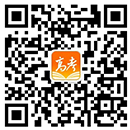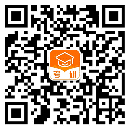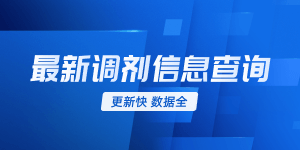一丹獎創辦人陳一丹博士於當地時間4月17日,參加了於美國聖迭戈舉辦的ASU+GSV全球教育科技峰會,並在峰會上發表以"從知識到智慧:教育為未來"為主題的主旨演講。以下為演講的中文及英文內容。
尊敬的各位嘉賓、女士們、先生們:
今天很高興來到聖迭戈,參加 ASU+GSV 全球教育科技峰會。在這個充滿機遇和挑戰的時刻,與各位共同探索教育創變,探索教育將如何麵向未來,深刻思考“從知識到智慧”的演進。

我們的世界瞬息萬變。21世紀20年代初的歲月,將因波瀾動蕩而永被銘記:極端天氣頻發,令全球變暖日益凸顯;新冠疫情肆虐,令世界累累傷痕;全球供應鏈搖搖欲墜;而機器則開始自我思考。
教育係統本應是破局的關鍵所在,卻在挑戰麵前難以振作應對。
顛覆性的技術變化總讓人措手不及。雖然我們已經為人工智能的突破進展做了很多準備,但當 ChatGPT 和剛出現的 GPT-4 迅速改變教學互動時,我們還是難以適應。因此,人們對於將先進 AI 引入學校存在嚴重分歧,有人讚成,有人反對。
許多領先的教育係統出於本能反應,排斥可能帶來不確定性的新技術。
然而,也有人擁抱技術的最新進展。薩勒曼·可汗(Sal Khan)先生不久前宣布了由 GPT-4 驅動的 Khanmigo,並向一定數量的教育工作者和學生開放,充分發揮 AI 助手的作用,同時確保道德風險可控。 OpenAI 創始人山姆·阿爾特曼(Sam Altman)先生今晚將在線上參會,也期待聽到他對 GPT 教育應用的看法。
封禁是麵對新技術的膝跳反射,抵製先進技術在教育中的應用是徒勞的,我們應該可以做得更好。
未來已來,不管你喜不喜歡。否認未來並非謹慎之舉,隻能暴露兩點:首先是前喻時代教育體係的尷尬——麵對 ChatGPT ,年輕一代比我們適應得更好。其次,人類害怕來自智能機器的競爭。
說到這兒,我問這個風頭正勁的聊天機器人,它如何看待當今的教育體係,對改進這一體係有何建議。以下是我們的聊天記錄。

我向 GPT4 提出了同樣的問題,它的回答內容更豐富,增加了三個觀點,即課程相關性、幼兒教育和高等教育/工作準備。
回答得很全麵,是不是?所以我就往深處繼續挖。

GPT-4 的回答更長,但觀點基本類似。沒關係,第三輪來了。

這個回答比較常規,但還是有亮點的。
你們覺得這些回答怎麼樣?我問了身邊的朋友,他們的看法正反都有。有的驚歎於機器的思路和表達能如此井井有條,也有的說覺得回答得可以更有原創性一些、不夠深刻。
回想我自己和我的朋友與 ChatGPT 的對話,除了驚豔於其與人類水平接近的表現之外,我有兩個思考。
首先,知易行難。對於當前教育體係中的缺點,識別固然容易,如何糾正卻難。AI的回答內容廣泛且深入。它給出的建議也很中肯,顯然都是正確的。
但這些難題依然存在。不是因為我們不知道如何解決,而是因為所提出的解決方案通常很難在現實世界中實施。
數字世界的進步,如果不被我們接受、不被現實世界中教育係統的利益相關者全心全意地接受,將不會產生任何結果。
其次,知難行易。反過來看,為什麼這些困難仍然存在,是因為我們仍然沒有意識到根本原因,基於認知的不同,一些學校禁止了 ChatGPT ,而另一些學校則欣然接受。
解決意見分歧的更好方法,是在現實生活中實踐看看。麵向未來的教育,應該將 ChatGPT 和其他重大技術進步,與我們的日常生活和工作聯係起來。適應這些技術,不僅對仍在學校的學生來說是緊迫的,而且也是終身學習中越來越重要的因素。
從上麵的思考可以得出,無論技術進步到哪裏,教育的本質是人性、是美德。
東西方先哲們的智慧是一致的。儒學經典《大學》開篇即言“大學之道,在明明德,在親民,在止於至善”。蘇格拉底主張首先要培養人的美德,教人學會做人,成為有德行的人。
在這個瞬息萬變的時代,一些人類獨有的能力和美德從未如此重要。創造力、領導力和毅力,這些當今教育十分關注的核心特征和能力,在未來隻會更加重要。
創造力,想象不可想象的;相信難以置信的;思考不可思議的。自由意誌的本質就是跳出思維的束縛,預期那些超越常規的場景。而統計模型難以處理的這些超常規場景,正是人類思維有優勢的地方。
領導力,將人們團結在對於未來的積極願景之下。當今世界日益兩極分化,這種品質尤為珍貴。在這方麵,機器無法替代人類的角色。有了強大的領導力,我們可以仔細監督人工智能在學校的應用,確保以合乎倫理、負責任和有效的方式使用人工智能。
毅力,作為一種獨特的人類品質,是在追求長期目標時毫不動搖的決心和熱情。堅毅源自人的精神力量,不同於機器不知疲倦的重複和演算。當生成式AI不斷發展迎合用戶時,人類堅毅的重要性愈發彰顯。
這三者是培養出來的,而不是學來的。知識不能簡單等同於智慧。教育如果隻注重傳授知識,就無法啟迪受教者。
創造力、領導力和毅力不僅是教育的目標,也是發展教育體係本身所急需的品質。
發展教育是如此之重要,我們的路徑是設立一丹獎,以表彰為教育研究和發展做出卓越貢獻的個人或團隊。
這麼多年很多人問起,你關注的為什麼是教育?我在一丹獎發布的時候曾經分享過:我的祖母雖然不識字,講不出什麼大道理,但認定讀書很重要。她把我的父親撫養成人,讀了大學,過上了相當美好的生活。
每當我想到她,總是充滿力量。
我相信教育的力量超越了個人層麵。一丹獎即將迎來七周年。七年曆程,緊張而富有成果,也更讓我堅信,這是一條正確的道路。社會進步,歸根結底靠教育。
一丹獎頌揚教育領域中創造力的典範
今天,一丹獎獲得者阿南特·阿格瓦爾(Anant Agarwal)教授也在現場。他的 edX 成為在線教育的典範,使數百萬學生享受到了便捷、實惠的在線學習機會。
以及卡爾·威曼(Carl Wieman)教授,他在過去二十年中致力於在 STEM 領域裏推動新的教學方法。
還有新學校基金會(Fundación Escuela Nueva)的創始人兼董事薇奇·科爾波特(Vicky Colbert)女士,她是首位一丹教育發展獎得主。她敢於跳出原本的框框,以創新的組織和教學方式,為資源最匱乏地區的學生裝備上 21 世紀所需的技能。
一丹獎讚賞教育領域中領導力的典範
在領導教育政策研究方麵,我們有埃裏克·哈努謝克(Eric A. Hanushek)教授,他的研究對發達國家和發展中國家的教育政策都產生了深遠影響。
還有學習政策研究所的創始主席琳達·達林哈蒙德(Linda Darling-Hammond)博士,她致力於通過高質量的政策研究為每個孩子提供公平、富有成效的教育。
在相同使命的鼓舞之下,法茲勒·哈桑·阿貝德爵士(Sir Fazle Hasan Abed KCMG)創立了跨社區資源建設組織(BRAC)。在過去的半個世紀裏, BRAC 幫助亞洲和非洲 11 個國家減輕貧困、為貧困人口爭取更多權益。
卡羅爾·德韋克(Carol S. Dweck)教授對成長型思維的研究,不僅揭示了自信的力量,還啟發了無數教育領域的研究者與實踐者,其中包括一丹獎得主烏莎·戈斯瓦米(Usha Goswami)教授,她將成長思維理論與認知發展神經科學緊密聯係在一起。
一丹獎致敬教育領域中毅力的典範
新教育實驗發起人朱永新教授孜孜不倦,倡導隨時隨地學習的理念。
女性教育活動組織(CAMFED)的執行主席露西·萊克(Lucy Lake)及首席執行官安吉·穆裏米爾瓦(Angeline Murimirwa),始終致力於為撒哈拉以南非洲地區的女孩和婦女創造公平競爭的環境。
魯克米尼·班納吉(Rukmini Banerji)博士及其 Pratham 團隊與政策製定者緊密合作,堅定不移地確保印度兒童從受教育的最初階段就開始培養基本技能。
拉裏·赫奇斯(Larry Hedges)教授,從成長於一個小村莊,到取得如今的斐然成就,這一曆程體現了毅力和教育帶來的無限可能。
除了一丹獎的獲獎者,我們明師堂的一些成員也出席了今天的活動,其中包括全球社會企業家網絡美麗世界(Teach For All) 的首席執行官兼聯合創始人溫迪·科普(Wendy Kopp)女士、以及托馬斯·凱恩(Thomas Kane)教授。在創造力、領導力或毅力等美德方麵,這些傑出人士往往是三者兼而有之。他們都是未來教育的代表,不單影響現在,更是麵向未來。

(一丹獎明師堂成員)
創造力、領導力和毅力組成的力量三角,構築了教育的內核。讓我們有能力擁抱不可知的未來。
不久的未來世代,人們的行動和思考,可能會習慣於聽一個更加了解自己的“它”。這樣的時代不可避免地來了,而且“它”進步驚人。
拒之門外是不現實的。
隻能積極與“它”共舞。“它”有腦的能力,這腦力可能將遠超人類的臨界值。但“它”沒有心的智慧。這就需要人們心智不斷提高。現在的社會,是基於每周工作五天的穩定製度。當某一天“它”迅速提升生產力,人們一個星期隻要工作兩個小時,餘下的時間用來幹什麼呢?同時,“它”還會將社會上所有的善惡、美醜、真偽、是非都悉數放大。所以長期來看,人類要有一個適應“它”的社會製度。
因此,教育在於培養腦力的提升,更在於培養美德和愛己及人的心靈。未來的教育之路,就是知識到智慧之路。
這就是我的思考。
教育的未來是什麼?教育的終點指向何處?演講的結尾,我又回到 ChatGPT 尋求一些火花。

它列了三個視角來回答這一題,一個是個人視角、一個是社會視角、一個是哲學視角。
但真正吸引我的,是它寫的最後一段。

這一次,我完全同意。
謝謝!
Knowledge to wisdom: Educate for the future
Distinguished guests, ladies and gentlemen,
It is my great pleasure to be here in San Diego at the ASU+GSV Summit. In this time of great opportunities and challenges, as we explore together how to navigate the changing landscape of education, it is essential to explore how to educate for the future and contemplate the evolution from knowledge to wisdom.
The world around us is constantly changing. And the first few years of early 2020s will be remembered as extraordinarily turbulent. Extreme weather is now the hallmark of climate change; a pandemic has scarred the world; the global supply chain is unraveling; and machines start to think.
Education system, while supposedly to be part of the solutions, is largely unable to pull itself together to meet these challenges.
Some of the disruptive changes are meant to caught us off guard. No matter how long we have prepared for the potential breakthroughs of artificial intelligence, few of us had expected that ChatGPT and GPT-4 lately, could change the dynamic of in-class teaching so much so fast. As a result, we are deeply divided on applying advanced AI in schools, with some in favor of it while others against it.
Many of the leading education systems yield to their instincts and reject technology that may bring uncertainty.
Others embrace the new development of technology. Mr Sal Khan recently announced the GPT-4 powered Khanmigo and opened to a selected number of educators and students, to make the full of AI assistant while assure the ethical risks would be minimized. Mr Sam Altman, founder of OpenAI will join us virtually tonight. It would be good to know his take on educational application on GPT.
Banning is a knee-jerking reaction. Holding back the applications of technological advances in education is futile. We should do better than this.
The future is here, whether we like it or not. Denying it is not a precaution but reveals only two things. The first is the awkwardness of teaching in the prefigurative era: the younger generation may have an upper hand in dealing with bots like ChatGPT. The second is how much we fear of competition from a smart machine.
That said, I asked the sensational chat bot about how it views today’s education system, and how to improve it accordingly. The following is our little conversation.

I raised the same question to GPT-4, which provided a richer answer, adding three more points, namely curriculum relevance, early childhood education, and higher education/work preparation.
Quite comprehensive, isn’t it? So I dig a little bit deeper.

The answer from GPT-4 is longer, but points are quite similar. Never mind, here comes the third round.

This one is a bit loose, although not without some flair.
How would you like those answers? I asked some of my friends, their feeling is mixed, some were amazed by its well-organized ideas and expressions, others said they expected something more original and with more depth.
Pondering upon my own small encounters with ChatGPT and those of my friends, aside from the awe of its humanoid performance, I have two thoughts in mind.
First, it is easy to say but hard to do. For flaws in current education system, it is easy to identify but hard to fix. What the bot told me is quite extensive and deep. Its suggestions are also genuine and apparently right.
Yet, these hardships remain. Not because we don’t know how to solve them, but because the proposed solutions are often quite hard to implement in the real world.
Advances in the digital world, if not full-heartedly embraced by us, by stakeholders of education systems in the real world, will lead us nowhere.
Second, it is easy to do but hard to understand. The flip side of the first point, is that these difficulties remain because we are still unaware of the underlying causes. Based on this lack of understanding, some schools banned ChatGPT, while others embraced it.
A better way to resolve divide of opinion, is practicing in real life. Education for the future, should bridge ChatGPT and other major advances in technologies, with our everyday life and work. Adapting to these technologies is not only urgent for those still in school, but also an increasingly important element for lifelong learning.
The essence of the two thoughts, is that no matter how far technology takes us, the core of education is humanity and virtue.
The wisdoms of Eastern and Western sages align harmoniously. The Confucian classic, The Great Learning, begins with, “the way of great learning consists in manifesting one's bright virtue, loving the people, and stopping in perfect goodness.” Similarly, Socrates advocated for cultivating virtues first, teaching, and guiding people to be individuals of moral character.
In this era of rapid change, some virtues that are uniquely human have never been so vitally significant. Creativity, leadership, and grit, the characteristics and capabilities that are at the center of today’s education, are much desired in the future.
Creativity is to imagine the unimaginable, believe in the unbelievable, and think the unthinkable. The essence of free will is to expect the outliers, thinking out of the box. Outliers, which are hard to catch by statistical models, are where human is superior.
Leadership is to unite people under a common positive vision of future. This is the much-needed virtue in today’s increasingly polarized world. We can’t rely on machine to do our job in this prospect. With the right leadership, we can carefully monitor the application of AI in schools to make sure it is used ethically, responsibly, as well as effectively.
Grit, a distinct human quality, embodies unwavering dedication and passion in pursuing long-term aspirations. Unlike machines that tirelessly perform repetition and calculation, grit stems from the human spirit. When the evolving landscape of generative AI catering to users, the significance of human grit shines through with great value.
These three qualities are nurtured rather than learned. Knowledge cannot simply be equated to wisdom. Education if only focuses on knowledge delivery, will fail to enlighten their recipients.
Creativity, leadership, and grit are not only the goal of education, but the much-needed qualities for education itself.
Developing education is so important, and our approach is to establish the Yidan Prize, which recognizes individuals and teams who have contributed significantly to education research and development.
I was often asked why I chose education as the focus. I had shared some personal experiences at the Launch Ceremony of the Yidan Prize. My grandmother was illiterate, but she believed strongly in education even though she didn’t articulate that in words. She managed to raise a son, my father, who made it to university and then went on to live a fairly pleasant life.
She was an inspiration to me.
Still, I believe that the power of education extends beyond an individual level. Soon will be the seventh anniversary of the Yidan Prize. The seven-year journey has been intense and fruitful. This the right path to take. And the conviction that education is the ultimate driving force for social progress, is so true to me.
In the Yidan Prize, we celebrate creativity in the education sector.
We’re joined today by the Yidan Prize laureate Professor Anant Agarwal, his edX has set the bar for accessible, affordable online education benefited millions of students.
And by Professor Carl Wieman, an accomplished physicist who spent the past two decades pioneering new pedagogies in STEM education.
And Ms Vicky Colbert, founder and director of New School Foundation (Fundación Escuela Nueva), the very first laureate for Education Development. Thinking outside the box, her way of organizing and teaching equips students from the most resource-constrained regions with 21st century skills.
In the Yidan Prize, we applaud leadership in the education sector.
In leading the education policy research, we have Professor Eric Hanushek, whose research has influenced education policies in both developed and developing countries.
And Dr Linda Darling-Hammond, the founding president of the Learning Policy Institute, strives to enable equitable and empowering education for each and every child through high-quality policy research.
Sir Fazle Hasan Abed KCMG, inspired by the same mission, founded BRAC, a network helped alleviate poverty and empower the poor across 11 countries in Africa and Asia for the past half century.
And Professor Carol Dweck, whose research on growth mindset not only revealed the power of believing in oneself, but also inspired numerous fellow researchers and practitioners in the education sector, including another Yidan Prize laureate Professor Usha Goswami, who linked the growth mindset theory to cognitive developmental neuroscience.
In the Yidan Prize, we salute educators with grit.
Professor Zhu Yongxin, founder of New Education Initiative, tirelessly promoted the idea of learning anywhere and everywhere.
Ms Lucy Lake and Ms Angeline Murimirwa, the Chair of the Executive and CEO of the Campaign for Female Education, or CAMFED, relentlessly working on leveling the playing field for girls and women across sub-Saharan Africa.
Dr Rukmini Banerji and her Pratham collaborates with policymakers to unswervingly ensure children in India develop foundational skills from the earliest days of their education.
Professor Larry Hedges—his personal journey from a small village to a highly accomplished career exemplifies the power of grit and the potential of education.
In addition to the Yidan Prize laureates, some members of our Council of Luminaries also attended today’s event, among them, Ms Wendy Kopp, CEO and Co-founder of Teach For All. And Professor Thomas Kane. Each and every one of those leading figures mentioned above excels in more than one category of creativity, leadership, or grit, often a combination of all three. They are the representatives of educate for future. Their influence is not only present, but into the times to come.
Creativity, leadership, grit, the triangle of strength forms the essence of education, empowering us to embrace the unknown future.
In the near future, we may increasingly turn to an “it” that understands us better than ourselves for guidance in our actions and thoughts. The arrival of such an era is inevitable, and its progress is astonishing.
Denial would be futile.
Instead, we must dance with it. While it possesses brain power that may far surpass human limits, it lacks the wisdom of the heart. This calls for the continuous development of human wisdom. Our current society operates on a stable system of a five-day work week. If the day comes when “it” rapidly boosts productivity, reducing our work hours to just two per week, how will we spend the remaining time? Meanwhile, “it” will magnify all the virtues and vices, beauty and ugliness, truth and falsehood, and right and wrong present in society. In the long run, humanity needs a social system that can adapt to “it”.
Therefore, education is not only about fostering brain power but more about nurturing virtues, self-love, and love for others. The future path of education is a journey from knowledge to wisdom.
What is the future of education? Is there an endpoint? To conclude this speech, I went back to ChatGPT for some ideas.

The bot outlined three perspectives, one personal, one societal, one philosophical.
But it was the concluding paragraph that truly captured my attention.

This time, I totally agree.
Thank you!
① 凡本站注明“稿件來源:beplay2网页登录”的所有文字、圖片和音視頻稿件,版權均屬本網所有,任何媒體、網站或個人未經本網協議授權不得轉載、鏈接、轉貼或以其他方式複製發表。已經本站協議授權的媒體、網站,在下載使用時必須注明“稿件來源:beplay2网页登录”,違者本站將依法追究責任。
② 本站注明稿件來源為其他媒體的文/圖等稿件均為轉載稿,本站轉載出於非商業性的教育和科研之目的,並不意味著讚同其觀點或證實其內容的真實性。如轉載稿涉及版權等問題,請作者在兩周內速來電或來函聯係。






 beplay2网页登录
beplay2网页登录



